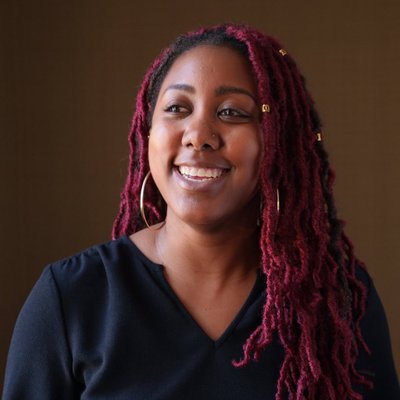"Homegrown Superstar" to Talk About Uncovering STEM Pathways
Tacoma native Jaleesa Trapp, now studying at MIT, describes her research into "engaging non-dominant youth in STEM."

“She’s a homegrown superstar,” says UW Tacoma Assistant Professor Emma Rose about Jaleesa Trapp. Trapp grew up in the Hilltop neighborhood of Tacoma and is currently working on her Ph.D. at the Media Lab at the Massachusetts Institute of Technology (MIT). Rose met Trapp while they were both students at the University of Washington. The former was pursuing a doctorate while the latter was completing her bachelor’s degree. “Jaleesa was close with my advisor and that’s how we met,” said Rose.
Rose and Trapp struck up a friendship that continues to this day. The pair share a common interest when it comes to diversity in STEM. Rose’s current research focuses on incorporating underrepresented communities in the design process. She is part of Project EMAR along with researchers from UW in Seattle. Rose and the team are building a robot that can measure stress in teens by soliciting feedback from high school students.
Trapp cultivated her passion for STEM at The Tacoma Clubhouse. The organization, “is a safe out-of-school digital design studio where young people from Tacoma learn to express themselves through design, science, technology, engineering, arts, and math.” Trapp was a regular at the clubhouse in middle and high school. She served as the program’s director for a few years after completing her degree in Human Centered Design and Engineering at UW in Seattle. Trapp also taught computer science at Tacoma Public Schools' Science and Math Institute (SAMI) and was a founding faculty member of the Industrial Design Engineering and Art (iDEA) school.
Rose is always looking to use her role as an educator to advance new ideas. She reached out to Trapp about the possibility of coming to campus. Trapp’s research focuses on using anti-racist approaches to, in her words, “engage non-dominant youth in STEM.” “She [Trapp] has developed a set of guidelines based on her research that I thought would be valuable for our community to hear,” said Rose.
Rose’s interest in Trapp is based on more than friendship. “A lot of the talk around the problem of diversity in STEM comes from a position of privilege,” said Rose. “Because of Jaleesa’s deep expertise in this area, she has an immense amount to teach us all.”
Recent news
Main Content
Educated Palate
Main Content
Lawless Honored with Governor’s Student Civic Leadership Award
Main Content
Towards the Functional Characterization of All Human Genes
UW Tacoma in the News
Main Content
Minnesota adoptees respond to fraud reports in South Korean adoption programs
Main Content
What’s next for The Swiss? Upcoming workshop to tackle how to best use iconic site
Main Content
Local Leaders Recognized at UW Tacoma’s Business Leadership Awards
Contact Information
- Phone: 253-692-4430
- Email: uwted@uw.edu
- Education, School of (directory)



